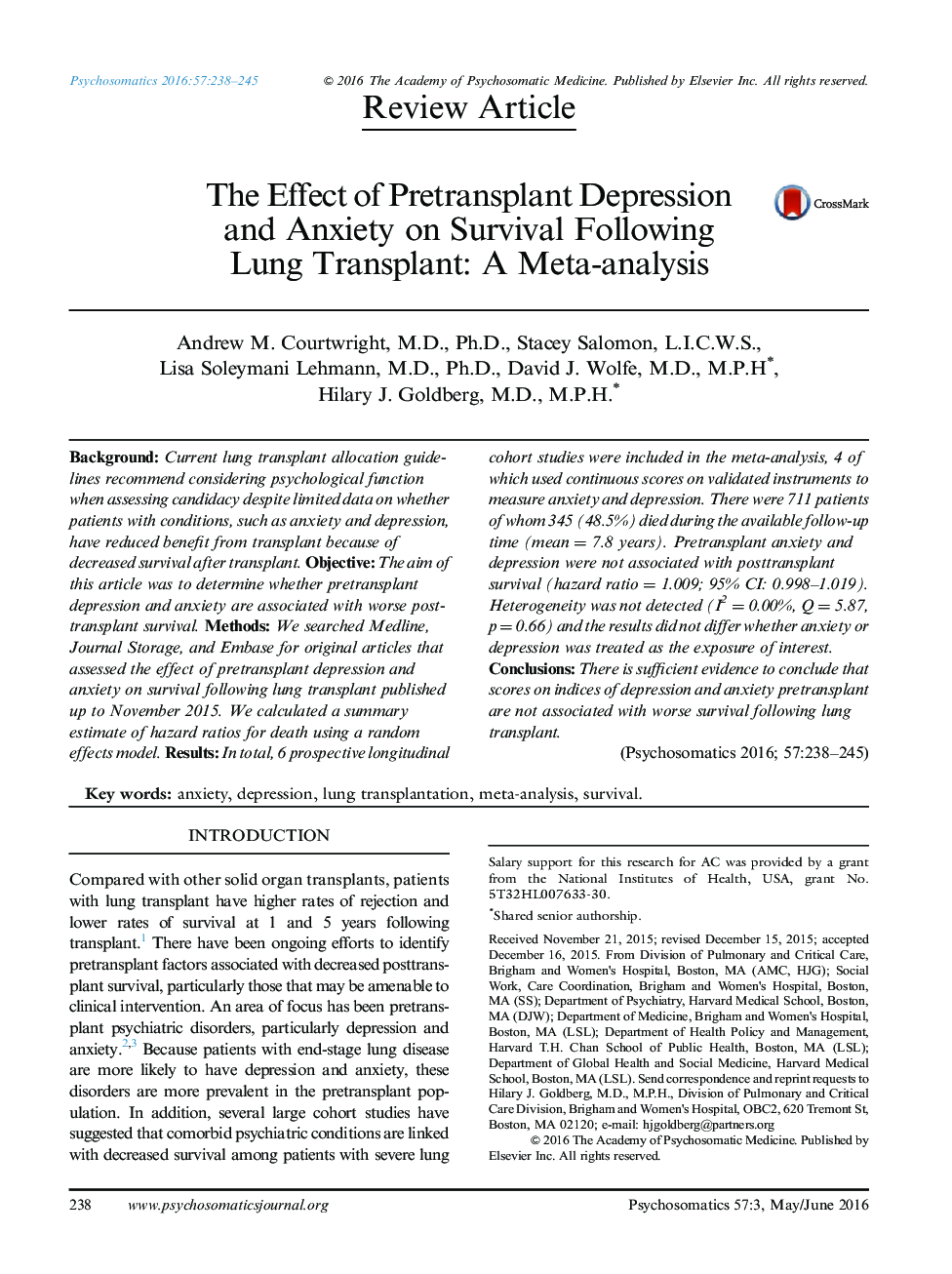| Article ID | Journal | Published Year | Pages | File Type |
|---|---|---|---|---|
| 337335 | Psychosomatics | 2016 | 8 Pages |
BackgroundCurrent lung transplant allocation guidelines recommend considering psychological function when assessing candidacy despite limited data on whether patients with conditions, such as anxiety and depression, have reduced benefit from transplant because of decreased survival after transplant.ObjectiveThe aim of this article was to determine whether pretransplant depression and anxiety are associated with worse posttransplant survival.MethodsWe searched Medline, Journal Storage, and Embase for original articles that assessed the effect of pretransplant depression and anxiety on survival following lung transplant published up to November 2015. We calculated a summary estimate of hazard ratios for death using a random effects model.ResultsIn total, 6 prospective longitudinal cohort studies were included in the meta-analysis, 4 of which used continuous scores on validated instruments to measure anxiety and depression. There were 711 patients of whom 345 (48.5%) died during the available follow-up time (mean = 7.8 years). Pretransplant anxiety and depression were not associated with posttransplant survival (hazard ratio = 1.009; 95% CI: 0.998–1.019). Heterogeneity was not detected (I2 = 0.00%, Q = 5.87, p = 0.66) and the results did not differ whether anxiety or depression was treated as the exposure of interest.ConclusionsThere is sufficient evidence to conclude that scores on indices of depression and anxiety pretransplant are not associated with worse survival following lung transplant.
